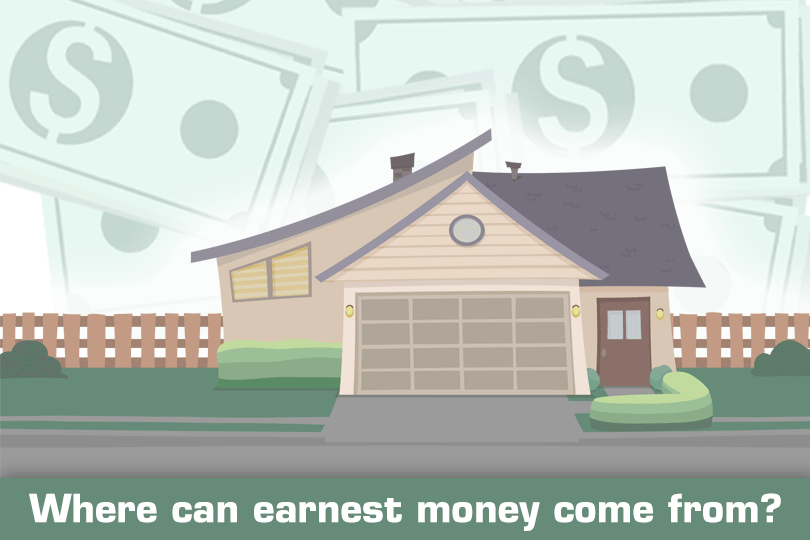FHA Loan Rules for Earnest Money

But what about earnest money? This cash, used to tell the seller you are serious about the purchase of a home, is also subject to FHA loan rules and restrictions quite similar to those associated with the down payment.
FHA Home Loan Earnest Money Rules Permit Bona Fide Gifts of Earnest Money
A friend, relative, co-worker, or other party not associated with the mortgage loan transaction may contribute earnest money to the borrower in the same fashion as with a down payment. FHA loan rules require the lender to properly source these funds.
The lender will be tasked with verifying that the gift giver has indeed offered the earnest money as a gift with no expectation of repayment and that payday loans, cash advances on credit cards, or other unapproved sources are not used.
FHA Home Loan Rules Require the Lender to Insure the Earnest Money Is Not Excessive
Earnest money is discussed in terms of percentages of the sales price of the home. You will read things online in certain circles about the earnest money payment being traditionally or customarily between one and two percent. If the borrower pays more, the lender will need to verify the source of the funds according to HUD 4000.1:
“The Mortgagee must verify and document the deposit amount and source of funds if the amount of the earnest money deposit exceeds 1 percent of the sales price or is excessive based on the Borrower’s history of accumulating savings”.
To do this, the lender will ask for a copy of the cancelled check, and/or a verification of deposit from the borrower’s banka Verification of Deposit (VOD) or bank statement showing that the borrower’s funds are sufficient to cover the earnest money deposit, according to the FHA loan handbook.
Earnest Money Rules Are Much the Same as the Sourcing Rules for the Down Payment
Essentially, earnest money rules are quite similar to the down payment funds sourcing guidelines-ask your lender how such issues are handled at that financial institution in addition to FHA guidelines.
------------------------------
RELATED VIDEOS:
Get to Know HUD
Using an FHA Loan Calculator
Living in a Single Family Home

Do you know what's on your credit report?
Learn what your score means.






